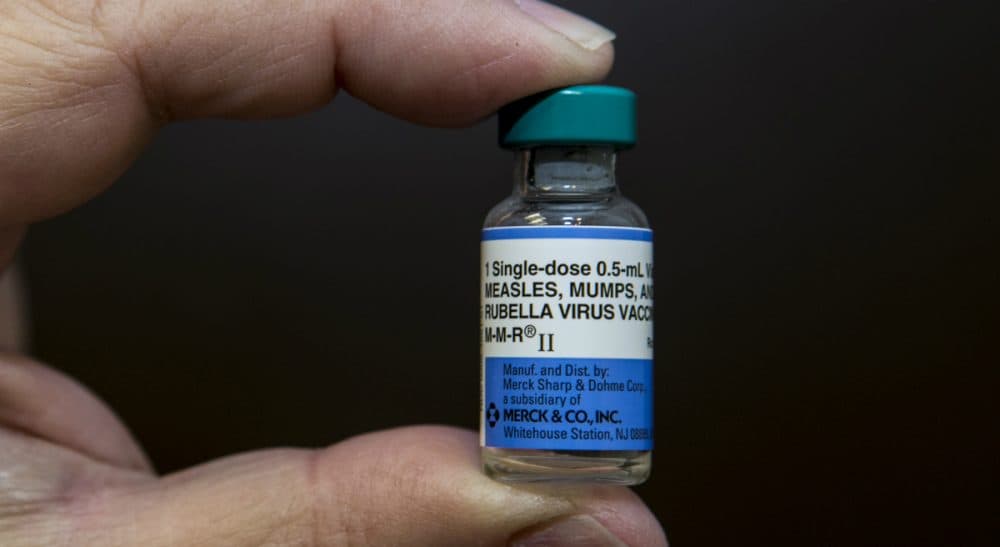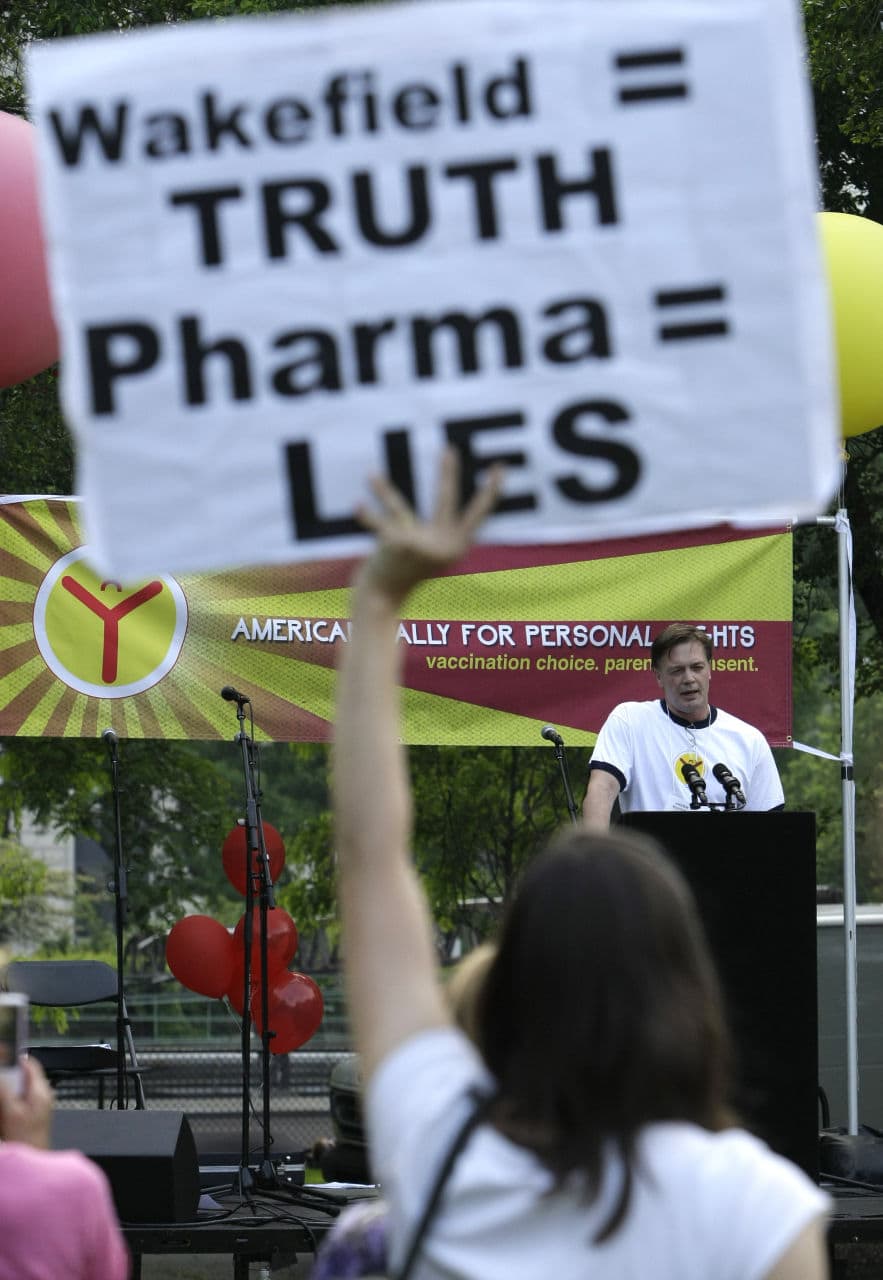Advertisement
The Anti-Vaxxers Aren’t Going Anywhere Anytime Soon. Here’s Why.

“Does anyone know where I could find a chickenpox party?”
So began a post my wife recently saw on an online message board for new mothers. The post, which was quickly taken down by site moderators, was lambasted by mothers who called out the original poster for child endangerment. But the message of that original post reveals that there are still parents in this country who believe that vaccinations are somehow worse than the alternative.
This should come as no surprise, given the recent spate of articles on the anti-vaccination movement and the Disneyland measles outbreak. These pieces appear daily, and all reiterate the same basic points: that vaccines are overwhelmingly argued by the medical community as necessary to public health; that Dr. Andrew Wakefield’s research (which seemed to link vaccines to autism) has been not only thoroughly debunked and retracted, but Wakefield has lost his medical license; that vaccines do not cause autism.
until autism is thoroughly understood and explained by science, there will continue to be conspiracies about its connection to vaccines.
Yet the anti-vaccination movement marches on, arguably as strong as ever. Not even the anger of mothers whose newborn children have been exposed to measles thanks to the anti-vaccination crowd can put a dent in anti-vaxxer narratives.
This is also not surprising — at least not to my native discipline of folklore. In “An Epidemic of Rumors,” I noted that the types of legends, jokes, rumors and bits of gossip that circulate during any major outbreak (AIDS, SARS, H1N1, etc.) very closely resemble the narratives that circulate during any other major outbreak. That is, humans recycle disease-related narratives. We tell the same stories over and over, adapting them as needed to new situations by changing names, dates and facts.
But the basic message of those narratives remains constant: fear. Fear of the unknown, fear of disease and harm, fear of death.
It is, of course, natural to experience fear. But this does not fully explain why these narratives are so compelling — why, for example, a rumor that the mercury-based preservative thimerosal in vaccines causes autism can rage for years after science has disproven its basic tenets.
For folklorists, the answer lies in the nature of the narratives themselves: that they fill a need that is otherwise not being met. As Dr. Andrea Kitta has noted in “Vaccinations and Public Concern in History,” conspiracy narratives are attractive because of “their ability to explain data which is currently without an explanation and link errant information with existing information.” In other words, one of the reasons that conspiracies continue to exist is that they are able to satisfactorily explain something that a different narrative cannot satisfactorily explain.
Advertisement

It is beyond the limits of this article to fully discuss why the conspiracy narrative is better at this task. Briefly, however — and the following list is not intended to be complete — it could be that the “different narrative” noted in the previous paragraph a) does not exist (as in the lack of explanations for novel phenomenon), b) is not trustworthy, or does not come from a trustworthy source (as in people who refuse to trust anything the government says), or c) is not fully developed.
It is this last point that seems most relevant to the vaccine-autism debate, which I use here as one of the best examples of vaccine-related fear. Science has refuted the connections between vaccines and autism, yes, but in doing so it has only created another informational vacuum: so what does cause autism? And since there is still no official explanation for the disease, there still exists a vacancy for a conspiracy.
This is not to say that there aren’t any strong scientific arguments about what causes autism. But just to show what can happen when it comes to conspiracy, let’s consider a single scientific article.
In 2011, a study compared the brains of “seven autistic and six control male children,” and concluded that the brains of the children with autism had “67 percent more prefrontal brain neurons” than the brains of children without autism, and that since these neurons are generated in “prenatal, not postnatal life,” that “early developmental disturbances in molecular and genetic mechanisms that govern proliferation, cell cycle regulation, and apoptosis” are likely to blame.
since there is still no official explanation for [autism], there still exists a vacancy for a conspiracy.
Yet despite what seems a strong link, this is still not enough to invalidate an entrenched conspiracy theory. This study was only conducted on the brains of 13 male children aged 2 to 16, meaning the sample size was very small; no females were examined; and the group of “control male children” did not include non-autistic children with “abnormally large brain[s]”-- an omission that might change the study’s results.
For some, this is enough confusion and uncertainty to allow belief in the conspiracy theory. Or, in short, until autism is thoroughly understood and explained by science, there will continue to be conspiracies about its connection to vaccines.
Applying this logic beyond just the vaccine-autism debate, this means that until science, medicine, society, etc. provides the answers that the anti-vaccination crowd needs (whatever those may be), there will continue to be conspiracies. There will continue to be fear. There will continue to be anti-vaxxers.
There will continue to be people wondering where they can find their local chickenpox party.
